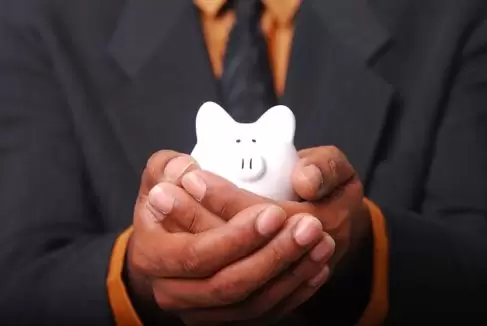 With an overdraft, the bank simply allows you to withdraw funds beyond the amount you have as balance in your account. This is a loan thus the bank will charge fees and interest rate on the overdrawn amount. This facility is an integral part of the financial habit of many people. However, it doesn’t always make financial sense. This piece takes a look at how reducing bank overdrafts or ignoring bank overdrafts completely can save you money.
With an overdraft, the bank simply allows you to withdraw funds beyond the amount you have as balance in your account. This is a loan thus the bank will charge fees and interest rate on the overdrawn amount. This facility is an integral part of the financial habit of many people. However, it doesn’t always make financial sense. This piece takes a look at how reducing bank overdrafts or ignoring bank overdrafts completely can save you money.
Higher Interest Rates and Fees
As mentioned earlier, you will have to pay interest rates and fees when you take advantage of overdraft. In many cases the rates and fees and higher than other loan sources. One of the main reasons for this is that there is higher risk on such loans as you are not subjected to typical lending checks before you can access the loan amount. The interest rates and fees are even higher when you go beyond the approved limit. Many banks have comprehensive platforms that make easy to see how much interest you are paying on any loan. By limiting your overdraft usage, you can save money that would have otherwise gone to service the debt.
Loss of Valuables
In some cases, bank overdraft facilities will be secured against collaterals such as insurance policies, shares and more. Your financial planning may take a hit if you fail to meet up with the repayments on your overdraft. Avoiding overdraft or reducing its use, reduces your chances of losing valuables, in addition to money spent on litigations.
Erratic Financial Prudence
When you are safe in the knowledge that you can always use the overdraft facility offered by your bank, it’s a lot more difficult to maintain financial discipline. You will not be on your feet with your finances as you know there is always more money to be used. In such a scenario, it becomes difficult to cultivate a healthy financial habit. A healthy financial habit will help you to save more money generally but avoiding overdrafts will help you save even more.
More Financial Mistakes
Overdrafts are super short term loans and the lending banks can request payment on short notice. In a bid to avoid losing collateral, you may take personal loans with poor conditions which will leave you in even bigger debt at the end of the day.
Summary
Whist an overdraft facility is cheap and relatively low risk, it is vital for you to weigh all your options before you decide to exercise your rights to it. Remember, you are not under obligation to use an overdraft. Making it an integral part of financial habit is a poor approach to using it and could make you lose more money over the course of a year. This is especially true if you already have credit card or mortgage debt as part of your obligations. Financially savvy individuals treat overdrafts as a last resort, trying hard to not go above approved limits. Proper budgeting and making frugal choices will help you to avoid needing the “safety net” that overdrafts present.
James Hendrickson is an internet entrepreneur, blogging junky, hunter and personal finance geek. When he’s not lurking in coffee shops in Portland, Oregon, you’ll find him in the Pacific Northwest’s great outdoors. James has a masters degree in Sociology from the University of Maryland at College Park and a Bachelors degree on Sociology from Earlham College. He loves individual stocks, bonds and precious metals.
